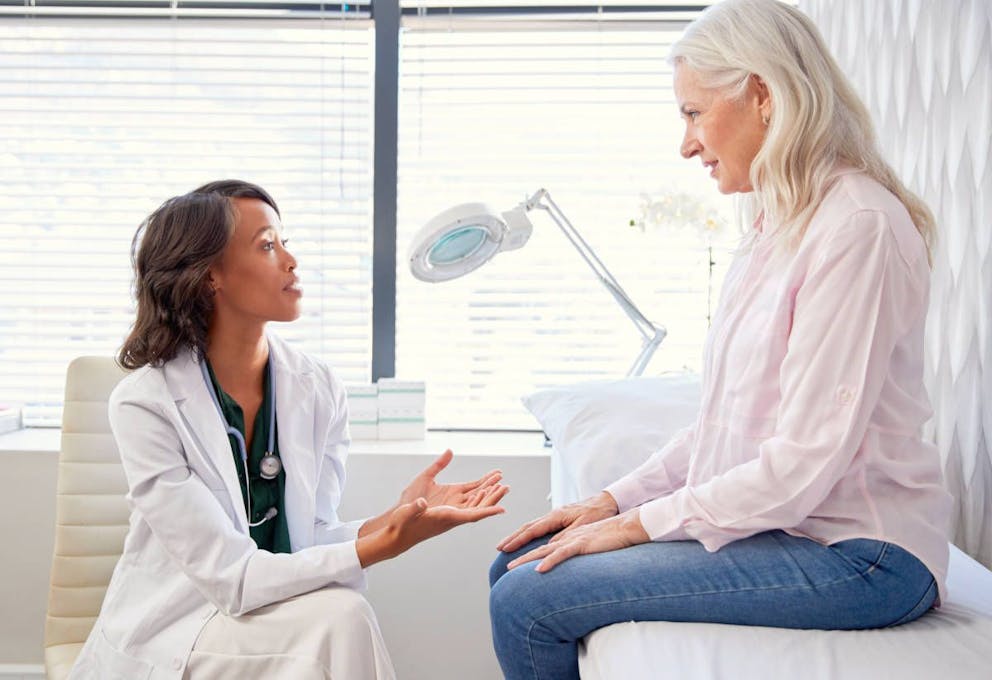DHEA and Menopause
Navigating menopause can feel like charting a course through uncharted waters. Hot flashes, mood swings, and sleep disruptions are common.
But what if there was a way to reclaim some control and ease these symptoms? Some women find relief with DHEA supplementation during menopause.
This isn’t about a quick fix but rather exploring DHEA for menopause and its potential benefits. We'll also cover important considerations before trying it.
This detailed guide addresses these questions, giving you the information to make the best choices for your health journey.
Understanding DHEA and Menopause
As we age, our hormone levels change, especially during menopause. This hormonal shift can bring discomfort and affect our overall well-being. It's a primary reason why DHEA for menopause is often discussed.
What is DHEA?
DHEA (dehydroepiandrosterone) is a hormone your adrenal glands naturally produce. It's a precursor to both estrogen and testosterone. DHEA levels typically peak in our 20s and gradually decline with age.
This decline can significantly affect estrogen and testosterone levels. These hormones play vital roles in many bodily functions. Declining levels contribute to menopause symptoms.
The Menopausal Transition and DHEA's Role
During menopause, estrogen and androgen production slows down. DHEA supplements may support hormone balance during this transition. This may offer relief from related symptoms, though it's not guaranteed.

Potential Benefits of DHEA for Menopause
Some women experience improvements with DHEA for menopause relief:
Improved Mood and Cognitive Function
Studies on DHEA for menopause suggest it may improve mood and concentration. Some women taking DHEA reported better outcomes than those on a placebo.
Larger studies are needed to verify these findings. More robust clinical trials will help to clarify the relationship between DHEA, menopausal brain fog, and mood changes. DHEA has shown potential in this area, offering hope for women.
Better Bone Health
Lower estrogen levels after menopause increase the risk of osteoporosis. Early research suggests that DHEA supplementation may help increase bone mineral density.
Maintaining strong bones becomes even more critical during menopause.
Enhanced Sexual Health
A potential advantage of DHEA for menopause is its support for testosterone and estrogen production. These hormones impact vaginal tissue.
Low estrogen levels can cause vaginal thinning, making sex uncomfortable. DHEA supplements can also potentially aid in maintaining muscle strength, further promoting sexual wellness.
Improved Energy
Some women using DHEA for menopause report improved energy and reduced fatigue. However, this effect requires further research.
More studies are needed to understand DHEA's impact on menopausal and post-menopausal fatigue.
This involves exploring sleep cycle disruptions caused by night sweats or temperature changes, as sleep quality is integral to energy levels.
Navigating DHEA Supplementation Safely
While DHEA may alleviate menopause symptoms for some women, using it without medical supervision is risky. Consulting with a healthcare professional is essential for personalized advice and guidance.
Starting Low and Gradual Increase
Always start with a low DHEA dose (10-25mg). Increase the dose only after discussing it with your doctor. This approach is crucial for safety and gauging your body's response to DHEA.
Potential Side Effects of DHEA
DHEA influences hormone levels. So, potential side effects may occur.
Side effects can include acne, oily skin, increased hair growth, mood swings, fatigue, and headaches. High doses and long-term usage can sometimes lead to liver damage, interactions with estrogen medications, blood pressure changes, and insulin sensitivity issues.
It's essential to discuss any existing health conditions with your doctor before starting DHEA. This helps ensure you make informed decisions about your health and monitor for any potential interactions or side effects.
A healthcare provider can assess your hormone levels and overall health picture. This will guide them in recommending an appropriate dosage.

DHEA for Menopause: A Personalized Approach
Using DHEA during or after menopause needs careful thought. Consult a healthcare professional before starting.
Working With Your Doctor
If you think DHEA may help with your menopause symptoms, talk to your doctor. Discuss your symptoms and concerns. Your medical provider will evaluate your health history and determine whether DHEA supplementation is appropriate.
This is important for understanding whether or not adding DHEA aligns with your unique biological makeup and needs.
DHEA's Role in Hormonal Balance and Vaginal Health
DHEA (dehydroepiandrosterone) supplementation has gained popularity for its potential to alleviate menopause symptoms, including low libido, fatigue, and mood swings.
This hormone precursor supports the production of estrogen and testosterone, helping to balance hormones naturally during menopause.
Beyond these benefits, DHEA may also improve vaginal health by enhancing tissue elasticity and moisture, reducing discomfort often associated with hormonal changes.
For women exploring how to get rid of BV naturally, addressing hormonal imbalances through options like DHEA supplementation can be a supportive approach.
A balanced hormone profile promotes a healthier vaginal microbiome, which is crucial for preventing bacterial overgrowth and maintaining overall reproductive health.
Consulting a healthcare provider ensures safe and effective use of DHEA tailored to individual needs.
Conclusion
DHEA for menopause is a multifaceted topic. Each woman's menopause journey is different. Consulting with a healthcare professional helps women find a plan tailored to their unique circumstances.
Open communication with your doctor is vital for navigating menopause safely and effectively.
FAQs about DHEA for menopause
Should a menopausal woman take DHEA?
The decision to take DHEA during menopause requires consulting a healthcare professional. Discuss your health, symptoms, and potential risks with your doctor.
A personalized approach is essential, as everyone experiences menopause differently. Alternative options, such as homeopathic remedies, can be explored as a first step, particularly given the potential risks of supplementing with hormones.
These less risky alternatives may naturally boost hormone levels. Diet, exercise, and other lifestyle changes can play a significant role, too.
What is the downside of DHEA?
While DHEA might benefit some women during menopause, it has drawbacks. The FDA doesn't regulate over-the-counter DHEA supplements.
Product purity, potency, and safety can vary across brands. Always talk to your doctor first. Some potential risks include unwanted hair growth, cholesterol changes, and blood pressure fluctuations.
Consulting a doctor before taking DHEA helps to understand these risks and their relevance to your overall health profile. There may be alternative strategies, like dietary adjustments, to achieve similar benefits without adding supplements.
What are the symptoms of low DHEA in female menopause?
Lower DHEA levels are common with age. It doesn't necessarily directly cause specific menopause symptoms. DHEA levels influence other hormones like estrogen and androgens, playing a role in overall hormonal balance.
Hormones have many interconnected effects, and other health factors are involved. Evaluating the entire system and not only relying on isolated blood test markers for a single hormone helps give a more holistic and accurate view. Therefore, working closely with a medical professional is crucial.
Is DHEA better than HRT?
There isn't a single best approach for managing menopause. Hormone Replacement Therapy (HRT) and DHEA are different options that require individual assessment based on needs and risks.
Previous blog
Eat This Food for OsteoarthritisNext blog
Body Fat Location Can Predict DiseaseTags

Popular
08/21/2024
56.3K views
02/23/2025
47.2K views
11/18/2024
284.3K views
03/18/2024
11/21/2022




